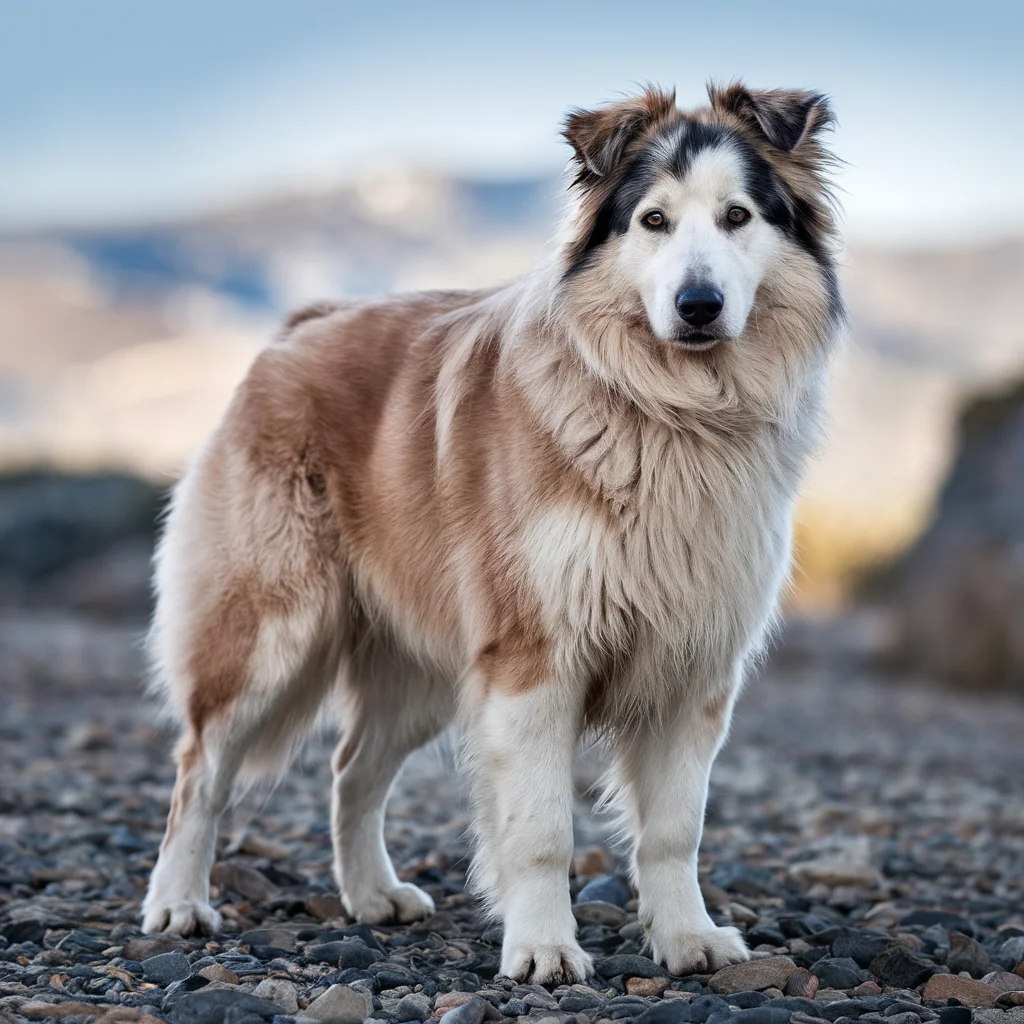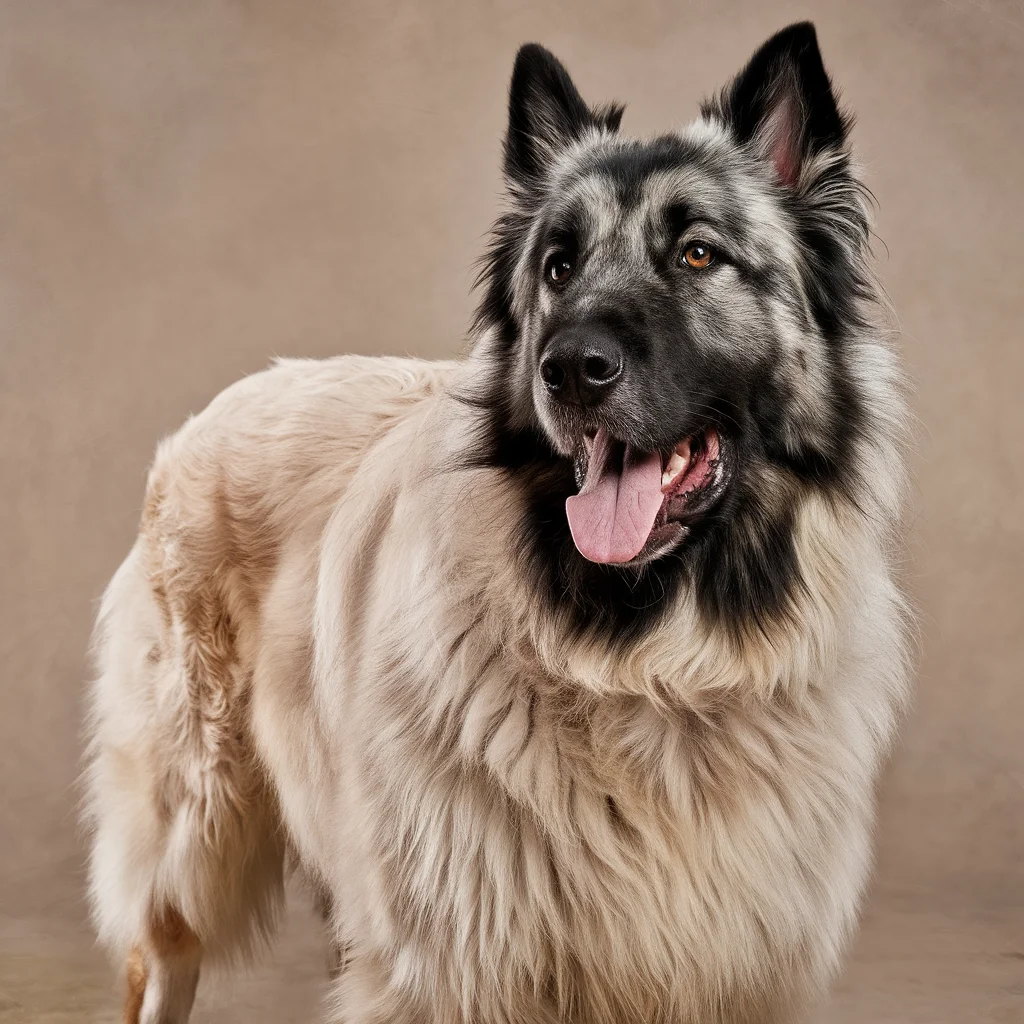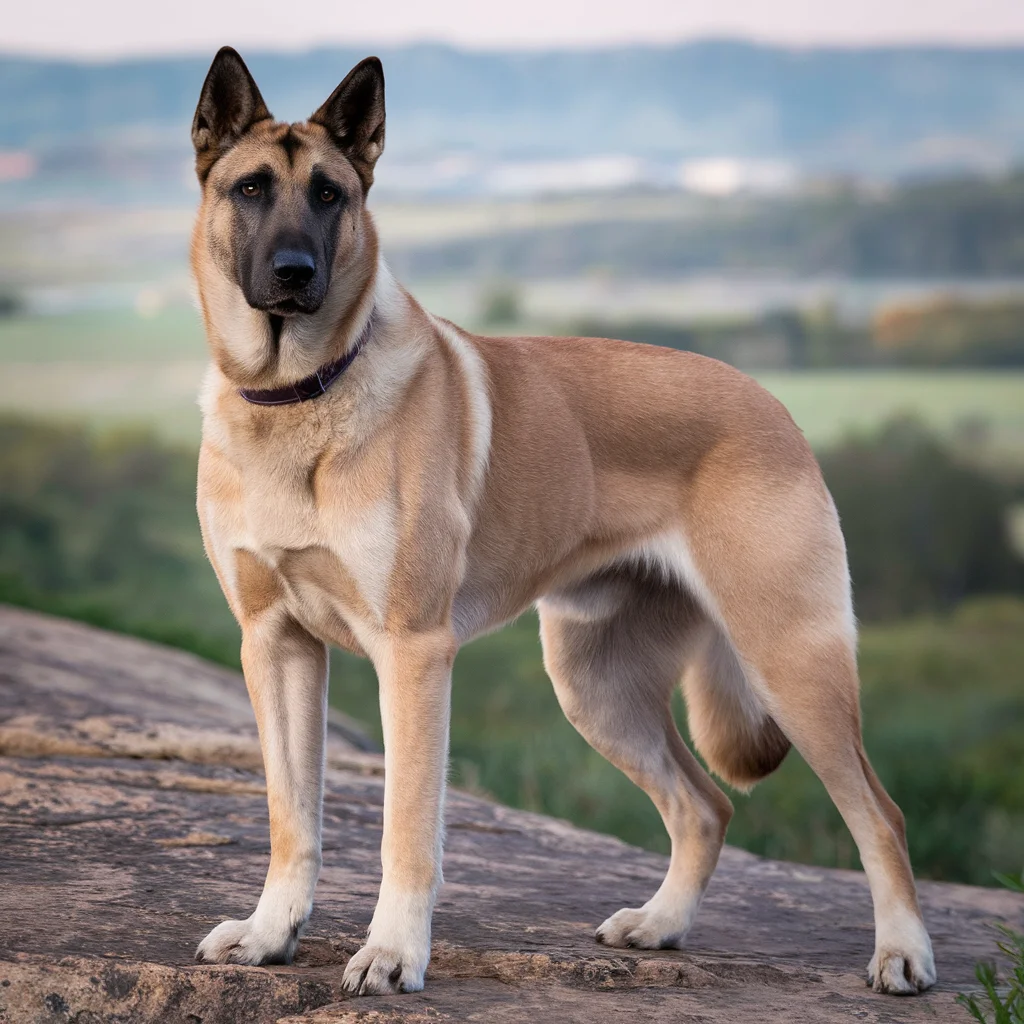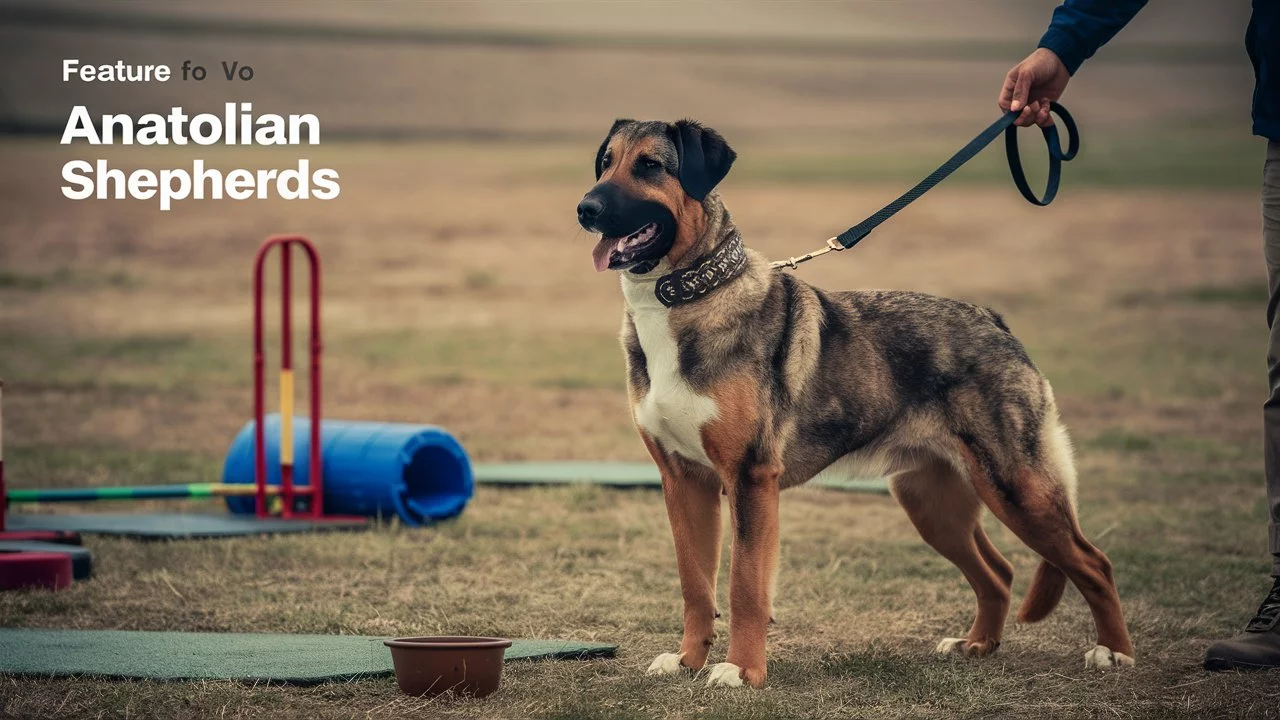Anatolian Shepherds are remarkable dogs, renowned for their loyalty and protective instincts. Training these magnificent animals requires understanding their unique traits and needs.
In this comprehensive guide, we’ll explore effective strategies for training Anatolian Shepherds, covering everything from puppy training to specialized working roles.
Understanding the Anatolian Shepherd

History and Characteristics
The Anatolian Shepherd has its roots in Turkey, where it has been a steadfast guardian of livestock for thousands of years.
Bred to protect sheep from predators, these dogs exhibit strong instincts for guarding and herding.
Key Traits:
- Size: Males typically weigh between 110-150 pounds, while females range from 80-120 pounds.
- Coat: They have a short, dense coat that provides protection against harsh weather.
- Temperament: Anatolian Shepherds are known for their independence, intelligence, and loyalty.
Understanding these characteristics helps owners tailor training methods that resonate with their dogs’ natural instincts.
Behavioral Traits
Anatolian Shepherds are naturally protective and can be wary of strangers. This makes them excellent guardians but can pose challenges in training if not managed correctly.
- Independence: While they are intelligent, their independent nature can lead to stubbornness. This requires a trainer to be patient and consistent.
- Strong Instincts: They often act instinctively to protect their family and property. This means early socialization is crucial to help them distinguish between friend and foe.
Is This the Right Breed for You?
Lifestyle Considerations
Before bringing an Anatolian Shepherd into your home, it’s essential to evaluate your lifestyle.
These dogs thrive in environments where they can have ample space and exercise.
Considerations:
- Space: They need room to roam. A large yard or open space is ideal.
- Exercise Needs: Daily physical activity is crucial. Expect to engage them in vigorous exercise for at least an hour each day.
Commitment Required
Training an Anatolian Shepherd is a long-term commitment. Consistency is key, as they respond best to structured training and clear expectations.
- Time Investment: Regular training sessions, socialization, and daily exercise require dedication.
- Family Dynamics: Consider how an Anatolian Shepherd will fit into your family. They tend to bond closely with their owners and can be protective of their loved ones.
Puppy Training Essentials

Starting Early
Starting training early is vital for Anatolian Shepherds. Socializing puppies between 3 to 14 weeks helps them develop into well-adjusted adults.
- Socialization: Introduce your puppy to various environments, people, and animals to minimize fearfulness and aggression later on.
Basic Commands
Training begins with essential commands that form the foundation of good behavior.
- Sit, Stay, Come: Use positive reinforcement techniques. For example, reward with treats or praise when they obey.
- Leash Training: Teach your puppy to walk calmly on a leash. This helps establish good walking habits early.
Positive Reinforcement Techniques
Anatolian Shepherds respond well to positive reinforcement. This encourages them to repeat desired behaviors.
- Reward Systems: Use treats, praise, and play as rewards. Be consistent in your rewards to reinforce training.
- Clicker Training: Consider using a clicker to mark the exact moment your dog performs the desired action.
House Training
House training is crucial for any puppy. Here’s how to effectively potty train your Anatolian Shepherd:
- Establish a Routine: Take your puppy outside frequently, especially after eating or playing.
- Praise and Reward: When your puppy goes outside, offer plenty of praise and a small treat.
Adult Dog Training Strategies
Reinforcing Basic Commands
As your Anatolian Shepherd matures, it’s important to reinforce the basic commands learned during puppyhood.
- Consistency is Key: Regularly practice commands to ensure they remain sharp and reliable.
- Daily Training Sessions: Keep sessions short and engaging—about 10-15 minutes is ideal.
Advanced Commands and Skills
Once your dog has mastered the basics, introduce more advanced commands and skills.
- Teaching Complex Behaviors: Commands like “heel” and “fetch” can be useful for managing behavior during walks and play.
- Using Distractions: Practice commands in various environments to help your dog learn to focus despite distractions.
Behavioral Issues
Anatolian Shepherds can develop behavioral issues if not properly trained or socialized. Common problems include aggression or excessive barking.
- Identifying Triggers: Observe when your dog exhibits these behaviors and work on desensitizing them to those triggers.
- Professional Help: Don’t hesitate to seek the guidance of a professional dog trainer if needed.
Specialized Training for Working Roles

Poultry Guard Training
Anatolian Shepherds excel in guarding livestock, making specialized training essential.
- Natural Instincts: Leverage their innate protective instincts to train them for guarding roles.
- Gradual Exposure: Start by introducing them to the animals they will guard, allowing them to acclimate to their presence.
Herding Training
If you want your Anatolian Shepherd to herd, training should begin early and incorporate specific techniques.
- Understanding Herding: Teach your dog commands like “come by” and “away” to guide their movements around livestock.
- Controlled Environment: Begin training in a controlled environment before introducing them to larger groups of animals.
Ongoing Training and Socialization

Importance of Continued Learning
Training shouldn’t stop once your dog reaches adulthood. Ongoing training helps maintain their skills and promotes good behavior.
- Regular Sessions: Incorporate training into your daily routine to keep your dog engaged.
- Challenge Them: Introduce new commands and skills regularly to keep their mind active.
Socialization with Other Animals and People
Continued socialization is essential to prevent behavioral issues.
- Group Classes: Consider enrolling in training classes with other dogs to enhance their social skills.
- Positive Experiences: Ensure all interactions are positive, helping your dog to feel comfortable in various situations.
Important Information for Owners
Health Considerations
Understanding health issues common in Anatolian Shepherds can help you provide better care.
- Common Health Issues: Be aware of conditions like hip dysplasia, bloat, and eye problems.
- Regular Vet Visits: Schedule regular check-ups to monitor your dog’s health.
Diet and Nutrition
Proper nutrition is vital for training success and overall health.
- High-Quality Diet: Feed your Anatolian Shepherd a balanced diet tailored to their age, size, and activity level.
- Consult Your Vet: Work with your veterinarian to develop a nutritional plan that meets your dog’s specific needs.
Exercise Requirements
Adequate exercise is crucial for this active breed.
- Daily Activity: Plan for at least one hour of vigorous exercise each day. Activities can include running, hiking, or playing fetch.
- Mental Stimulation: Incorporate puzzle toys and training games to keep their minds engaged.
Resources for Further Learning
Books, Websites, and Videos
To enhance your training knowledge, explore various resources:
- Books: Look for reputable titles on dog training and breed-specific guides.
- Websites: Utilize online resources like the American Kennel Club for tips and advice.
- Videos: Consider watching training videos on platforms like YouTube to see techniques in action.
Community Support
Engaging with fellow Anatolian Shepherd owners can provide valuable support and insights.
- Local Training Classes: Join classes to connect with trainers and other dog owners.
- Breed Clubs: Consider becoming a member of breed-specific clubs for resources and community events.
Conclusion
Training an Anatolian Shepherd is a rewarding journey that requires patience, consistency, and understanding of the breed’s unique needs.
By starting early and using positive reinforcement techniques, you can cultivate a well-behaved, loyal companion.
Remember, the key to success lies in ongoing training and socialization, ensuring that your dog remains engaged and happy.
Now that you’re armed with all the essentials, embrace the challenge of training your Anatolian Shepherd, and enjoy the rewarding bond that forms through this process!












